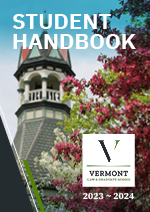2017 Spring Residential Classes
ADR6405/Arbitration
Professor(s)
Semester
2017 SpringADR6413/Mediation Advocacy
Professor(s)
Semester
2017 SpringADR6415/Environmental Dispute Resolution
Professor(s)
Semester
2017 SpringADR6420/Negotiation
Professor(s)
Semester
2017 SpringBUS6235/Corporations
Professor(s)
Semester
2017 SpringBUS6245/Employment Law
Method of evaluation: Final exam
Professor(s)
Semester
2017 SpringBUS6255/Income Tax
Method of evaluation: Class participation, written projects, and final examination.
Professor(s)
Semester
2017 SpringBUS6262/Social Enterprise Law
Professor(s)
Semester
2017 SpringBUS6280/Sales
Method of evaluation: Final exam
Professor(s)
Semester
2017 SpringBUS6285.A/Secured Transactions
Professor(s)
Semester
2017 SpringBUS6290/Securities Regulation
Professor(s)
Semester
2017 SpringBUS6360/Intro to eLawyering
Professor(s)
Semester
2017 SpringBUS6371/CyberSecurity
Professor(s)
Semester
2017 SpringCLI9302/Environmental and Natural Resources Law Clinic
Professor(s)
Semester
2017 SpringCLI9310/South Royalton Legal Clinic FT
Professor(s)
Semester
2017 SpringCLI9312/South Royalton Legal Clinic PT
Fall 2016-- two sections, students must attend one of the following daily for the first 3 weeks: 8:30 -- 9:45 AM or 2:10 -- 3:25 PM. NOTE: For both Fall sections, classes are held as scheduled Monday – Friday for the first 5 weeks. There are 5 consecutive class days to start; after that 11 (eleven) class days are spread throughout the following 4 weeks.
Registration: You must apply to enroll in SRLC through the VLS Clinical Communication application system.
Professor(s)
Semester
2017 SpringCLI9315/South Royalton Legal Clinic Class A & B
Fall 2016-- two sections, students must attend one of the following daily for the first 3 weeks: 8:30 -- 9:45 AM or 2:10 -- 3:25 PM. NOTE: For both Fall sections, classes are held as scheduled Monday – Friday for the first 5 weeks. There are 5 consecutive class days to start; after that 11 (eleven) class days are spread throughout the following 4 weeks.
Registration: You must apply to enroll in SRLC through the VLS Clinical Communication application system.
Professor(s)
Semester
2017 SpringCLI9326/Advanced EnvNat ResLaw Clinic 6
Professor(s)
Semester
2017 SpringCLI9329/Advanced EnvNat ResLaw Clinic 9
Professor(s)
Semester
2017 SpringCLI9333/ADV South Royalton Legal Clinic 13
Professor(s)
Semester
2017 SpringCLI9336/Advanced South Royalton Legal Clinic 6
Professor(s)
Semester
2017 SpringCLI9339/Advanced South Royalton Legal Clinic 9
Professor(s)
Semester
2017 SpringCLI9405/Dispute Resolution Clinic
Professor(s)
Semester
2017 SpringCLI9411/Semester In Practice
Professor(s)
Semester
2017 SpringCLI9412/Semester In Practice Class
Professor(s)
Semester
2017 SpringCLI9425/JD PT Externship
Professor(s)
Semester
2017 SpringCLI9427/Energy Clinic
Professor(s)
Semester
2017 SpringCLI9428/Food & Agriculture Clinic
Professor(s)
Semester
2017 SpringCLI9430/Judicial Externship
Professor(s)
Semester
2017 SpringCLI9431/Judicial Seminar
Professor(s)
Semester
2017 SpringCLI9437/Advanced Energy Clinic
Professor(s)
Semester
2017 SpringCRI7307/Criminal Practice and Procedure
Professor(s)
Semester
2017 SpringCRI7350/Criminal Law Clinic
Professor(s)
Semester
2017 SpringDIV7620/Native Americans and the Law
Professor(s)
Semester
2017 SpringENV5105/Administrative Law
Professor(s)
Semester
2017 SpringENV5115/Environmental Law
Professor(s)
Semester
2017 SpringENV5205/Air Pollution Law and Policy
Professor(s)
Semester
2017 SpringENV5220/Environmental Economics and Markets
Professor(s)
Semester
2017 SpringENV5228/Energy Regulation and the Environment
Professor(s)
Semester
2017 SpringENV5235/Natural Resources Law
Professor(s)
Semester
2017 SpringENV5246/Water Quality
Method of Evaluation: One commentary (1000 words) and take-home final take home.
AWR (No)
Professor(s)
Semester
2017 SpringENV5250/Watershed Management and Protection
Professor(s)
Semester
2017 SpringENV5301.A/Advanced Agricultural and Food Law Writing Seminar
Professor(s)
Semester
2017 SpringENV5303/Advanced Energy Writing Seminar
Professor(s)
Semester
2017 SpringENV5305/Environmental Ethics
Professor(s)
Semester
2017 SpringENV5306.A/Comparative Environmental Law Research
Professor(s)
Semester
2017 SpringENV5342/Legal Adaptation to Global Warming
Professor(s)
Semester
2017 SpringENV5375/Global Energy Justice
Professor(s)
Semester
2017 SpringENV5380/Food Regulation and Policy
Professor(s)
Semester
2017 SpringENV5401/Agricultural Environmental Law
Professor(s)
Semester
2017 SpringFAM7705/Estate & Gift Taxation
Professor(s)
Semester
2017 SpringFAM7710/Estates
Professor(s)
Semester
2017 SpringINT7407/Comparative Law: Comparative Legal Systems
Professor(s)
Semester
2017 SpringINT7412/Law of the European Union
Professor(s)
Semester
2017 SpringINT7414/European Union Law - Trento
Professor(s)
Semester
2017 SpringINT7420/International Criminal Law
Professor(s)
Semester
2017 SpringINT7432/Applied Human Rights
Professor(s)
Semester
2017 SpringINT7491.A/International Law Topics
Professor(s)
Semester
2017 SpringLIT7220.A/Trial Practice A
Professor(s)
Semester
2017 SpringREQ7125/Legal Writing II: Theory and Practice, A-F
Professor(s)
Semester
2017 SpringWRI7344/Advanced Legal Research
Professor(s)
Semester
2017 SpringWRI7345.A/Advanced Regulatory Research
Professor(s)
Semester
2017 SpringWRI7350/Advanced Skills for Practice
Professor(s)
Semester
2017 SpringWRI7352/Bar Exam Skills and Tactics, A and B
Professor(s)
Semester
2017 SpringXAD7815/Municipal Law
Professor(s)
Semester
2017 SpringXAD7821/Estate Planning
Professor(s)
Semester
2017 SpringXAD7823/Bankruptcy, Foreclosure and Collection
Professor(s)
Semester
2017 SpringXAD7830/Legal Activism

















